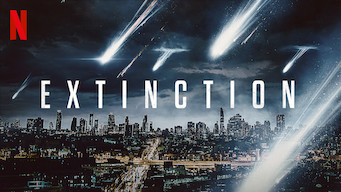The future sucks.
Honestly, the present also sucks, but there's some disagreement about the how, the why, and the how much. You may have seen these arguments play out on your favorite social media app, so I won’t recount them here, but it’s an ““open-question””. But the future?


In this show it sucks; in that show it sucks. Even Star Trek: Picard has poor people in it now. The future is unanimously bleak in our social consciousness, even though most of us act as though this unrebutted collapse isn’t just around the corner. It’s become a sort of nihilistic joke—our descent—and even those who are fighting to build the better alternative have a hard time imagining exactly what it would look like. Invariably, it all spirals back to cynicism, irony, and dread.
And now, as the coronavirus and the fear that follows and precedes it spreads around the globe, it’s become ever clearer that our present social order is not long for this world. That doesn’t mean it’s dying tomorrow, and it definitely doesn’t mean it’ll die peacefully or that it will open up the space for something better, but it doesn’t give one much reason to reconsider our trajectory.
So, what does one do, as a game creator, in a time like this? Just wallow in it? Concede that everything is awful and just commiserate in it? That’s one way to go. Another is accepting it but searching for some beauty or wonder in it, a silver crack with just enough space for two: friends, lovers, family—something made all the more beautiful and precious against such hopeless horizons.
Or, you can revel in it. Give the player a gun, tell them they live in a world without rules, without morals, without consequence and admire the spurts of blood that erupt from the necks of those faceless punks you just blasted the skulls off of.
These are all forms of coping and, to be honest, I love a lot of them. There’s a lot of wonderful writing in this space, and coping is not always a bad thing.
In Gene Roddenberry’s old Star Trek shows, divisions such as race had not just been overcome, they were forgotten. His characters didn’t have socioeconomic backgrounds or even internal conflicts. Their only struggles were the ones they decided to tackle for themselves.
But isn’t that just a little bit cheesy now? A little... bland? Unrealistic? It’s rooted in “fantasy,” not reality, and honestly, I think people, myself included, get more out of stories about coping with the future than transcending it. It doesn’t speak to anything in our lives. Do you remember being forced to read Beowulf in your English classes and then asked to engage critically with the text? Students walk out of most English classes feeling like their assignments are contrived because they are contrived. Beowulf speaks to a people and a way of living long surpassed and forgotten. It’s historical now; dead ink, not life. The world of the old Captain Kirk spoke to a people and a time in the 60s perhaps but today, like Beowulf, it’s just pixels, not life.
But the other day on Twitter, I bound myself to creating only stories with happy endings. So... what the hell am I supposed to do?
I have recently been reading bits of a book lent to me by a friend called Queer Progress: From Homophobia to Homonationalism by Tim McCaskell. Despite the implications of the title, it’s not about building the Queer Nation (at least, I think it’s not, I haven’t finished it). What it refers to is a phenomenon he explains in his simple introduction in regards to the Israeli lobby trying to prevent Queers against Isreal Aparthaid (QuAIA) from marching in Toronto’s 2012 Pride Parade:

As a social movement, gay rights had been successful beyond its early strategists’ wildest dreams. From a reviled, quasi-criminal class, we were now included in the constellation of minorities valued by Canadian multiculturalism. Our sexual orientation was no longer a barrier to full legal citizenship. We were recognized in a developing international human rights architecture.
But this progress has been rather queer.
Our rights are used to portray Alberta oil sands as “ethical oil,” as compared to that coming from “homophobic” Arab countries. We are caught up in the pinkwashing campaign that justifies Israeli apartheid as liberal and democratic. We are deployed to stoke Islamophobia and racism. Under Stephen Harper’s Conservative government, Canada’s acceptance of gay Iranian refugees was used as a propaganda weapon to isolate Iran and to extend U.S. strategic interests in the Middle East—interests that are about money and power, not social justice.
In the early days of gay liberation, political speech was tolerated, no matter how outrageous. It was always sex that got us into trouble, both doing it and talking about it. But in 2012, we were told that Pride was about celebrating sex in all its outrageous manifestations. It was political speech that was unacceptable.
Future: better or worse? As a socialist, I believe in the need to not just reform but to transcend our current social relations, but I’m not ready to write that story yet. Maybe it’s my own lack of imagination or courage, but it doesn’t feel like something that wants to be written. Perhaps that will change, but in the meantime, it seems this idea of progress, of better, is a peculiar thing. Perhaps there is more space for new stories about our miserable fate to be written after all.